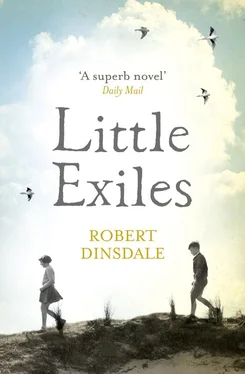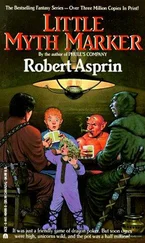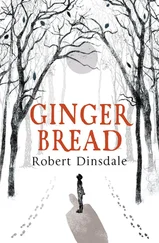LITTLE EXILES
ROBERT DINSDALE
It is proposed that the Commonwealth seek out in Britain, by whatever means necessary, at least 17,000 children a year suitable and available for immediate migration to Australia.
Arthur Calwell, Australian Minister for Immigration, 1949
Table of Contents
Title Page LITTLE EXILES ROBERT DINSDALE
Epigraph It is proposed that the Commonwealth seek out in Britain, by whatever means necessary, at least 17,000 children a year suitable and available for immediate migration to Australia. Arthur Calwell, Australian Minister for Immigration, 1949
Book One: The Children’s Crusade BOOK ONE
Chapter I
Chapter II
Chapter III
Chapter IV
Chapter V
Chapter VI
Chapter VII
Chapter VIII
Chapter IX
Chapter X
Book Two: The Stolen Generation
Chapter XI
Chapter XII
Chapter XIII
Chapter XIV
Chapter XV
Chapter XVI
Book Three: The Three Childsnatchers
Chapter XVII
Chapter XVIII
Chapter XIX
Acknowledgements
About the Author
Copyright
About the Publisher
BOOK ONE
The boy standing vigil at the end of the lane, a Christmas lantern in his hand, still believes his father is coming home. Christmas, he has been taught, is a time of family, when errant sisters might come back to the fold, when black-sheep brothers might go carolling with the mothers they say they despise. He is eight years old, proud to be nearly nine, and he still recalls last Christmas, how he stood at the end of the lane, tracking every approaching motor car until the snow drifts climbed above his boots. It had taken his mother to prise him away. She had hoisted him up and hauled him back to the terrace, where his sisters were ready to welcome him with hot mulled wine – which was terrible to taste, but at least made him feel warm and fuzzy inside. He had gone to bed that night in squalls of tears, but risen the next morning to presents under the tree – a book he had pined for, The Secret of Grey Walls , a cap gun he had been told, time and again, not to expect – and it was not until the evening that he realized he had not thought of his vigil all through the day. This year, he has resolved, he will not be so cowardly. He has his cap gun tucked into his belt, he has brought mulled wine in a flask, and he has wrapped up warm. Christmas is a time of family and a time of miracles. The logic will not be denied.
It is 1948 and, though he has never once seen his father, he knows that he is coming home.
He was born in the middle month of winter in the year of 1940. He has twin sisters older than him by eleven years, and they are the ones who attended his birth, straining with his mother in the backroom of the terrace where they live. Of his earliest years, he remembers little. His mother kneads dough in a bakery before dawn and cleans houses in the afternoon, and it is his sisters he remembers making him breakfast and dressing him every morning. He grows up, quickly, between one end of the street and another. A shop mistress smiles when he enters her shop, secretly palming barley sugars into his hands. A neighbour invites him to play with her daughter in a backyard on the other side of the road. So lost is he in this world of women that it is not until he sees two brothers tumbling over one another further down the terrace that he discovers it is cowboys and Indians he longs to be playing, not with dolls’ houses and ponies chipped out of wood.
At night, there are sirens. If the sirens sing before dusk, they hurry together to a shelter buried in the grounds of a house at the end of the terrace. Outside, the world quakes. Through a speak-hole sliding back and forth, the boy can see cascading oranges and reds, great reefs of smoke. He hears whispers of factories on fire and great barrage balloons strung through the skies.
If the sirens do not sing until after dark, they remain in their house, crammed into a cubbyhole beneath the stairs. Sometimes the building shakes. At first, the boy does not understand the fear – but, in the tomb under the stairs, terror is a disease that spreads quickly. One night, crammed into that cubbyhole, his mother begins to sob. The boy believes he can hear his own name in the tears: Jon, Jon, Jon, the word swallowed by the song of the siren.
He is five years old when he begins to ask about his father. It is 1946 and there are suddenly strange men in the streets, great companies of them descending on the taprooms and alehouses. Jon watches them from his window at the top of the terrace. He notices, for the first time, that his mother stands alone at the end of their lane each evening, watching these strange intruders march back from the ruins of warehouses and factories they are rebuilding. He wonders if she too is bewildered at the invasion of their city, but his sisters smile oddly when he dares to ask the question. They tell him she is waiting. Nothing more, and nothing less. She is waiting for their father to return.
They bring out photographs. A man with wild black hair glowering into the camera. A man with two young girls, one sitting on either knee. His name, they tell him, is Jonah, though he too is always known as Jon. It thrills the little boy to think that he, one day, might be like the man in the pictures.
At the back end of summer, a man in uniform arrives at the house next door, and the little girl with whom Jon is sometimes invited to play is introduced, for the first time, to her father. Jon watches as the man pauses, the little girl framed in the doorway, and crouches to urge her forward. At first she freezes, her mother looming behind. Then the man vaults the brick wall, scooping up the child and embracing her mother in one swift movement. In some of the other doorways along the redbrick row, other women have appeared to witness the reunion. One of them, Jon notes, begins to applaud.
There are stories to be learned. His father was a hero fighting a crusade on the other side of the world. His father was in the jungle teaching the natives to fly Spitfires. There are other stories as well – his father once worked at a lathe; his father was arrested in a backroom brawl – but these are not the tales with which the boy obsesses. Though the boy has never once met the man, he wants to grow up and be just like him, out in the world on grand adventures, with friends and family at home thrilling for news of his exploits.
He begs his mother every evening to tell some other tale of his father’s derring-do. Sometimes he is swooped away by his sisters – but, sometimes, he is wily enough to trap his mother in the question. One night, after his sisters have put him to bed, his mother returns from an evening sweeping some factory floor. He waits for her to climb, wearily, to her bed – and then he pounces. He tells her he has had a nightmare, that he dreamed of his father lost, somewhere at sea, fending off sharks with the butt of a broken oar.
It is nonsense, she tells him. His father cannot swim; he would never have got himself into such trouble in the first place.
The boy does not notice, at first, when the stories stop being told. He supposes it may have been earlier than he first thought, for he was surely telling himself the stories as well, lining up his lead soldiers and imagining them his father’s company, or building matchstick planes and putting his father in the cockpit. In his games, his father makes his way home from the jungles on the other side of the world, but is forever sidetracked by helpless villagers, or orphaned children searching for someone to protect them. Each time he goes to sleep he constructs a new fantasy, some other adventure his father cannot resist as, kingdom by kingdom, he picks his way back to English shores.
Читать дальше












